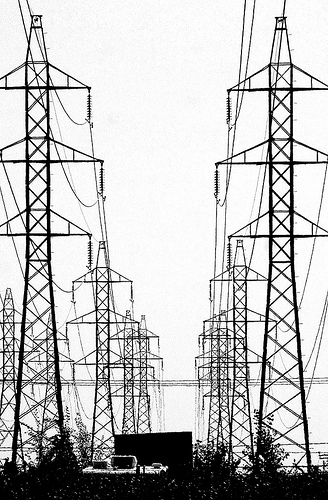Change the conversation, support rabble.ca today.
Hydro-Quebec is thinking of intervening in the Nova Scotia Utility and Review Board hearings on the Muskrat Falls/Maritime Link project, declaring itself “very surprised by the analysis and conclusions” of the recent report by consultant John Dalton that declared Muskrat Falls a far better deal for Nova Scotia than the alternatives, including power from Hydro-Quebec.
We can only hope it does. This could be a good thing for both the utility and Atlantic Canada.
First, we’d get the missing other view on what those interconnections to Quebec and their economics really are, and maybe where Hydro-Quebec stands on future deals.
Hydro-Quebec is not the only one to be surprised. Points have been raised about chunks of energy reality missing from the report, based on the narrowness of the terms of reference. I got a call from Neal Livingston, alternate energy producer and consultant, who said the report rings up the cost of a 600-megawatt cable from Newfoundland delivering 150 Mw of power for Nova Scotia; but then it inappropriately makes the same calculation for Hydro-Quebec, from where there’s no need for the extra capacity.
“Since when does importing approximately 150 megawatts need a 600-megawatt connection?”‘ he asks. And is this why, in the study, Hydro-Quebec is $400 million more expensive than Muskrat Falls? Would this also be why Hydro-Quebec is surprised by the calculation? “Maybe I’m missing something,” says Livingston, but he suspects that the consultant was given terms of reference that required this conclusion.
Meanwhile, an appearance might be good for Hydro-Quebec. A couple of years ago, the hydro behemoth was taken aback at the negative reaction that scotched a deal whereby it would take over most of New Brunswick Power, although arguably the deal would have made sense in a technical-energy-financial way.
The fact is, viewed from Atlantic Canada, Hydro-Quebec, one of world’s largest power utilities, is commonly seen as a faceless, technocratic Kremlin of energy, whose intentions — if it has intentions — are mysterious and yoked to the nationalist agendas of Quebec governments, notably separatist ones.
It would be good if Hydro-Quebec put on a face, showed up in Halifax and talked.
Of course, it would have to be prepared to nod to the deeper reason for Atlantic mistrust — the 1969 Churchill Falls deal where Newfoundland got the very short end of the stick. The picture got even worse a few years ago when a couple of Memorial University professors, Peter Feenan and Melvin Baker, dug deeper into the story. Hydro-Quebec had “negotiated in good faith” nearly to the end. The contract would run to 2016, after which terms would be renegotiated. Then Hydro-Quebec found out that the Churchill Falls and Labrador Co., which has already started the project, would run out of money in three months. It then coldly demanded this: extend the contract from 2016 to 2041 at rates even lower than they were in 1969, or no deal.
Newfoundland has gone to the courts twice to reopen the contract, with no luck, but never on the renewal clause. Some say it should. Or would Hydro-Quebec be prepared to relent on that outrageous renewal clause? That would be news. Meanwhile, Newfoundland and Labrador Premier Kathy Dunderdale has said that 2041 will be a big year for Newfoundland — the year Churchill Falls power to Quebec is cut. 2041 is just three decades away — not long in energy project terms. Maybe that has got Hydro-Quebec thinking. It understands hardball.
But dirty and unethical as that move was, let’s not forget the other side. Joey Smallwood, Atlantic Canada’s original jobs-obsessed premier, was the power behind Churchill Falls, our first and most catastrophic jobs-obsessed project. Starting it with only one buyer was tantamount to sticking out a glass jaw. Hydro-Quebec needed only give it a light tap. Both feet into it first, no questions asked. How different is Muskrat Falls?
Since Dunderdale has removed Muskrat Falls from the jurisdiction of the Newfoundland public utilities board — depending on a rash of non-independent studies that has the opposition, and apparently a large part of the public, furious — Newfoundland’s attention on Nova Scotia’s URB hearings will be keen. St. John’s lawyer Dennis Browne, a prominent critic of the project, points out that a federal-provincial panel turned thumbs down on Muskrat Falls, and “the conventional view is that it would not pass a regulatory review.” Problems of water rights, aboriginal rights, transmission over an unforgiving terrain, some 22 conditions to meet before the federal loan guarantee kicks in, are all in the air.
The “Anglo Saxon Route: now being considered is a “vision of the last century” that was rejected several times for its cost and complexity, he says. The Nova Scotia hearings will be the only independent assessment of the project, and “Hydro-Quebec’s intervention could help in providing a real assessment of all these issues.”
Hydro-Quebec, please show up.
This article was first published in the Chronicle Herald.
Photo: caribb/Flickr



